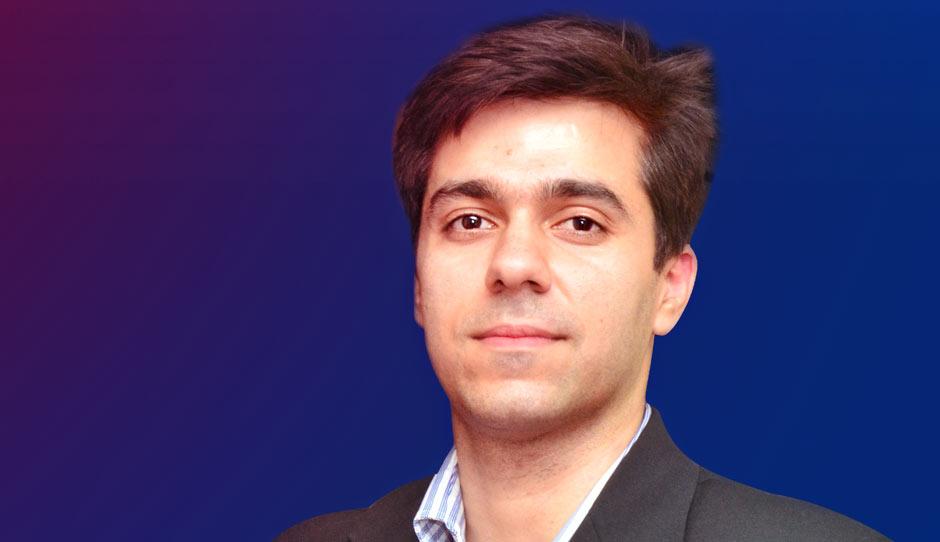I Was Always Inspired To Be An Entrepreneur: Tarun Wig
- BY Aayushi Wadhwa
 In
In  14938
14938 0
0

Innefu Labs launched Authshield 2FA, a unique two-factor authentication solution that uses a protocol level decoding engine to offer enhanced protection to personal and business information stored digitally on personal devices or at onsite, remote or cloud-based systems. Tarun Wig, founder, Innefu Labs talks about his foray into the business of cyber security and how he became an entrepreneur.
I was born and brought up in Delhi in a regular middle class family. We were a joint family living in the same house. I grew up with a lot of cousins which included elder sisters as well as my own age cousins. Growing up in a joint family had a profound effect on me. I learned a lot from my elder sisters and that influenced my personality to a great extent. They taught me basic values which I have carried forward in life. My brothers-in-law inspired me to read, which opened my horizons and introduced me to different avenues of thought.
I completed my schooling from Montfort Senior Secondary School, a Christian missionary school with branches in various parts of the world. I completed my graduation from Bharati Vidyapeeth University (BVP) in electronics and communication engineering.
By the time I passed out from school, I was already interested in cyber security which included appliances as well as software. BVP, at that point of time, had a brilliant electronics and communications engineering department where both software as well as programming PCB boards were taught which I foresaw as a learning experience for my chosen profession.
During my graduation, I started my first company where I was a co-founder and director of Appin Group of companies. At Appin, we started with training engineering students in niche technologies and soon moved into providing cyber security services to corporate and government institutions. Within four years, Appin was evaluated at INR 14 crore and went through a first round of funding. Soon after, I sold off my stake and co-founded Innefu Labs.
I always knew that I was headed towards running my own company. I learned a lot from many people that I came across in the course of business. Some of whom have become close friends and mentors and I have a very strong personal bond with them.
As I mentioned above, I sold off my stake in Appin and co-founded Innefu. I was always interested in developing information security products while in Appin we were more focused towards developing information security services. The entire team of Innefu is completely focused on developing security products. We do not venture into providing security services at all unless we are providing our software as a service.
I was always inspired to be an entrepreneur and follow my own visions. Surprisingly, I don’t intend for my company to be anything other than what it currently is. When we started Innefu we were focused on developing indigenous security products and we still continue to do the same.
Growth came in spurts and there were times when we had to struggle for survival. However, we cashed onto most of the opportunities that came our way and got a lot of client referrals cause of the quality of our products as well as our support services.
We will be going through our first round of funding this year. I realised that an organisation cannot run on passion and ideas alone. It requires a lot of mind share going into operations and areas which I had more or less considered useless. Small decisions on HR and conveyance policies, normal office administration took a lot of mindshare and time. I realised that our processes have to be come strong and stable so that we move from a people dependent organisation to a process-oriented one. I also learned to back the right people and give them a free hand to manage a process.
Ultimately, it depends on the relationship that you forge with people. If your relationships are strong, your employees will treat the organisation as their own while the partners and clients will be more comfortable in working with you since they know that you will be there to support them throughout. Over the years, the personal relationships have been backed with strong service level agreements.
We were the first Indian company to have developed and deployed an Internet monitoring system across an entire state. We also deployed our link analysis engine for Delhi police which has been used very successfully by them over the years. We have received a lot of referral clients based on our work done in multiple government organisations including DRDO, multiple state police departments and so forth.
Being an entrepreneur, the passion still takes over and clouds a lot of my judgments but I have been lucky to have a cofounder who does not let instinct cloud his decisions. We end up having debates where we bring forth our views and are able to come to mutually acceptable decisions. I realise now that gut instinct has to be backed with some data not only for your peers to accept the decision but also for your own self to be able to back your instinct to the hilt.
Since it is a product-oriented startup, we went through a lot of troughs as well as peaks over the years. The first couple of years were pretty tough when our products hadn’t yet gained acceptance in the market. We had to prove ourselves at every opportunity. However, with constant support from some of our regular clients we have achieved a stable growth over the past three years.
The moment hasn’t happened yet but we are all confident that it’s just round the corner. I don’t think there is any penny we have earned which we did not have to struggle for.
A proud moment:
Our core team has been with us for as long as four years now which is quite an achievement for a young startup.
The references that we have achieved from our clients proving the quality of our product and their confidence in us.
We have ended up beating well-established Israeli and US-based companies in our technical knowhow and product quality.
To build a brand known for the quality of its products and the value addition it provides to its partners and clients.
No matter what India does with the IT-ITES sector, it will not scale dramatically to become a true economic power. Our GDP in 2013 was approximately USD 1.88 trillion out of which the IT-ITES sector contributed less than 5.8 percent. The number of people directly employed by the Indian IT-ITES sector was 10 million, in the same timeline Microsoft with a work force of 99,000, made USD 77.84 billion. Add IBM and CISCO to the mix, and the combined output is more than what has been projected for India for the next 5 years.
The contribution of IT-ITES will be marginal in towards the Indian GDP unless something dramatic happens. And that can only happen with more technology product companies. There is a big space in India for indigenous product companies and that is the space we intend to target.





























Add new comment